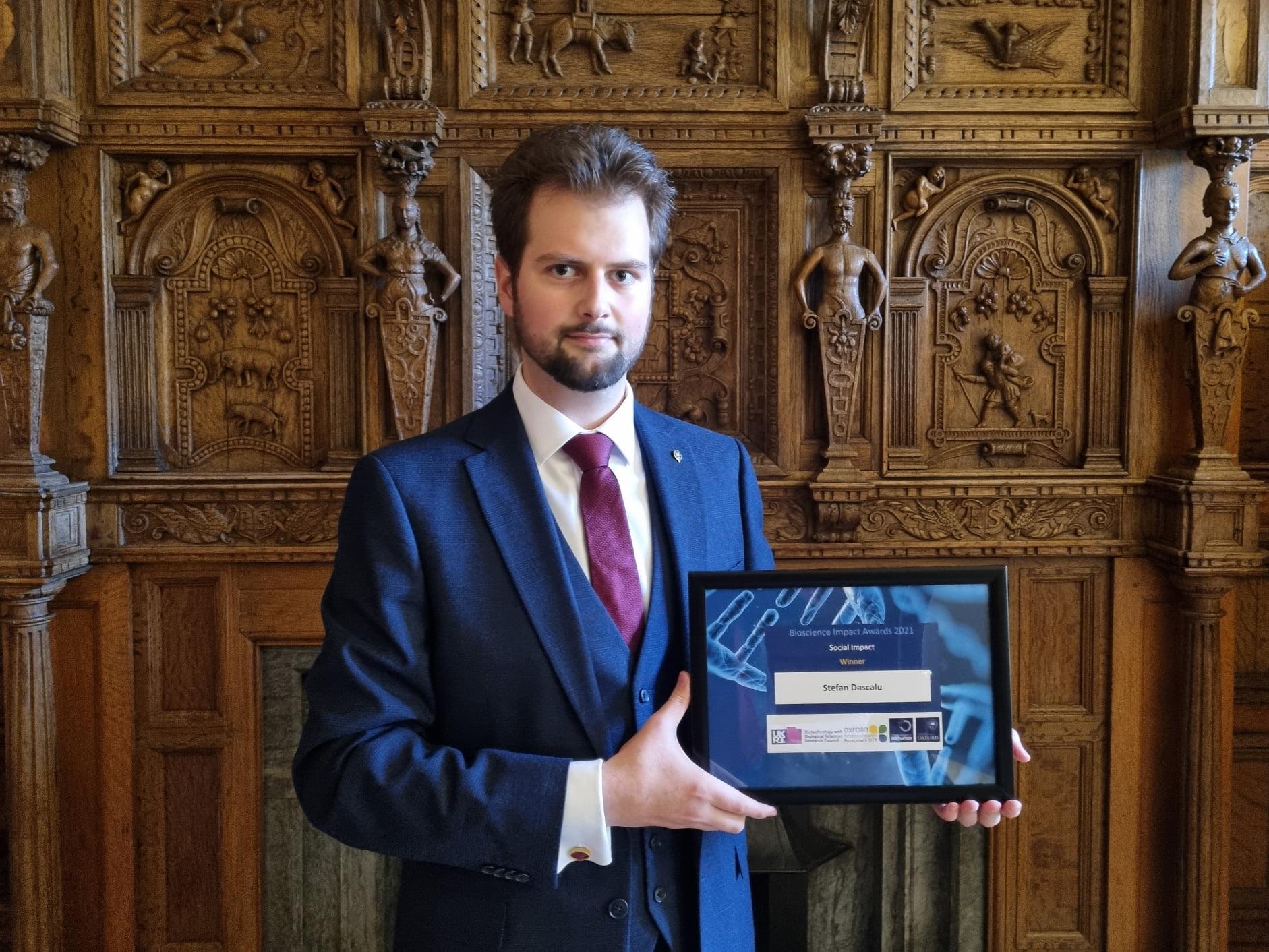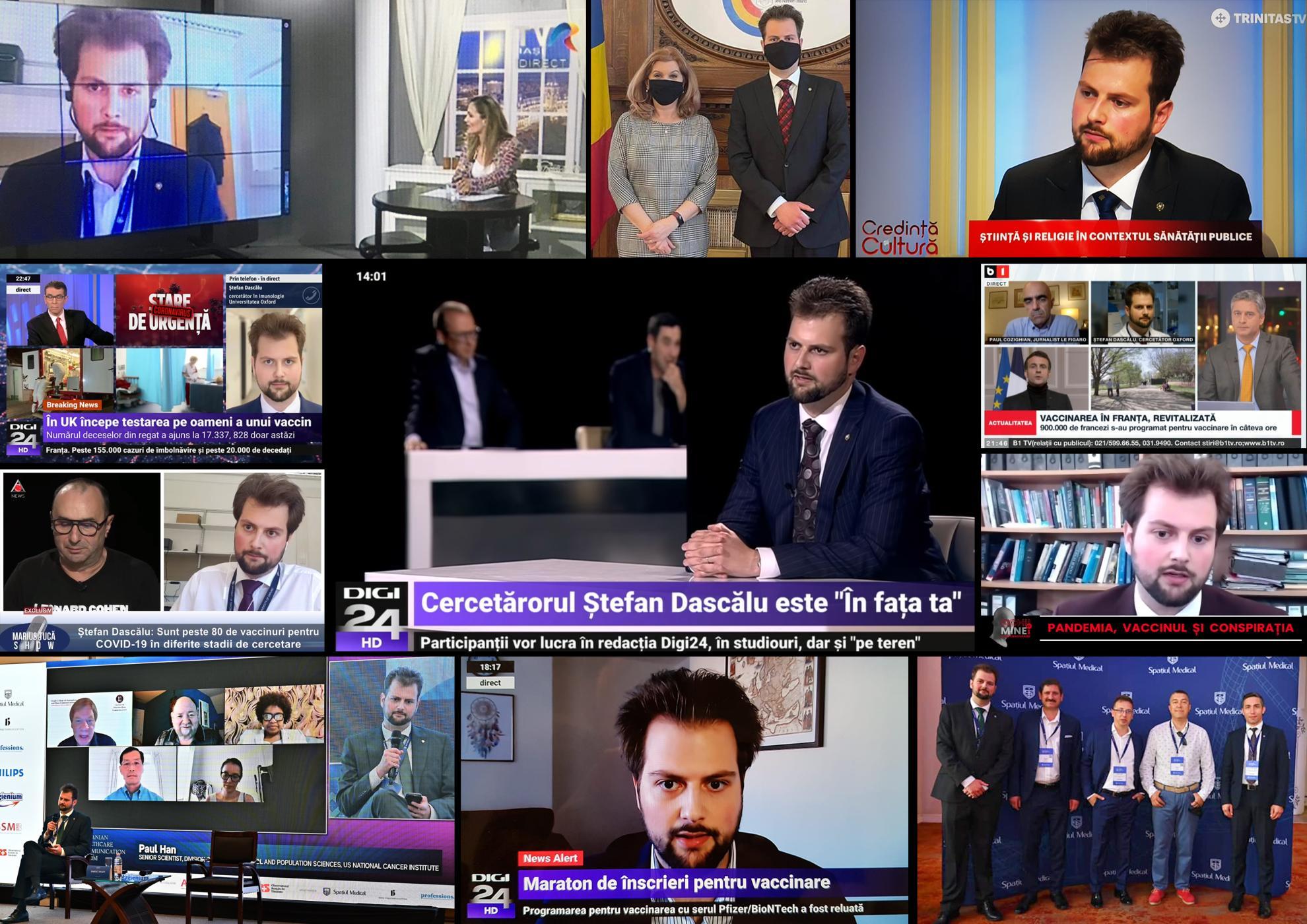The COVID-19 pandemic has had a devastating impact on public health and the global economy. Vaccine rollouts, ongoing global research and test and trace programmes each play a crucial role in tackling the virus but so does increasing public knowledge and confidence in each of these areas. That is why public engagement efforts such as those of Stefan Dascalu’s (DPhil Candidate at the University of Oxford and a member of The Pirbright Institute’s Avian Influenza Virus group) cannot be underestimated if we are to reduce the devastating impact of the pandemic on people’s lives.
Stefan’s doctoral research project is focused on the immune response to avian influenza infections in poultry, however, over the past 18 months he has devoted much of his spare time to public health activities in the effort to combat the COVID-19 pandemic, particularly in his home country of Romania. It is this work which has seen him honoured with an Interdisciplinary Bioscience Doctoral Training Programme (DTP) Impact Award.
Since early 2020, Stefan has appeared extensively on Romanian national television and radio offering accessible scientific expertise, providing information about infectious diseases, how the immune system responds to infection, and why it is important to adhere to the measures aimed at containing the spread of the virus, such as social distancing and wearing face coverings. His efforts were not limited to Romania either and in the UK, he participated in a series of live online broadcasts where he provided information about SARS-CoV-2 infection and the immune system and addressed the public’s concerns, efforts which received recognition from the Ambassador of Romania to the United Kingdom.
Since December 2020 Stefan has assisted the Romanian vaccination campaign to increase public trust in the immunisation efforts. He helped improve the national COVID-19 vaccination strategy by coordinating the draft of an academic paper highlighting the main challenges of vaccine implementation in Romania and providing a set of recommendations to help overcome these. This paper, co-authored with prominent figures in Romanian public health, was featured on the official website of the Ministry of Health and received extensive media coverage.
Stefan reviewed the successes and failures of Romania’s initial pandemic response, providing the international research community with comprehensive reference work on this topic and was the keynote speaker at conferences including the National Conference of General Practitioners and the Romanian Healthcare Communication Forum. His academic contribution led to him being invited to join an international academic and professional network aimed at improving public health in Romania, and to become a Fellow of the Romanian Society for Epidemiology.
As well as engaging with the general public, academics and public health officials, Stefan worked with religious institutions and church officials in Romania in order to increase public compliance with the official COVID-19 guidelines and tackle the issue of vaccine hesitancy. He appeared on the official television station of the Romanian Orthodox Church, where he discussed vaccination and its benefits and was invited to become an associate expert for FoRB Romania, an interdisciplinary community focused on topics related to freedom of religion and belief. These activities also serve as the basis for an academic publication (currently under review) on the involvement of religious institutions during public health crises.
On being awarded the BBSRC Social Impact Award, Stefan said:

“The ongoing pandemic has posed significant challenges and has highlighted the need for appropriate and timely scientific communication. I am honoured to receive such a prestigious recognition of my efforts towards mitigating the impact of COVID-19. Romania has been severely affected by the pandemic, and I am happy that I was able to contribute to the improvement of public health through my academic and communication activities. I will be forever grateful to my family, friends, and colleagues for their constant support. I feel extremely fortunate to be part of such thriving intellectual environments at both the University of Oxford and The Pirbright Institute, and I greatly appreciate the encouragement and the help which I received throughout.”
